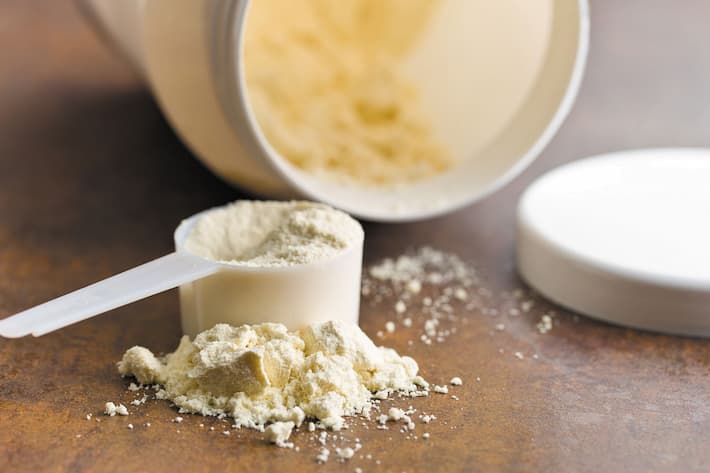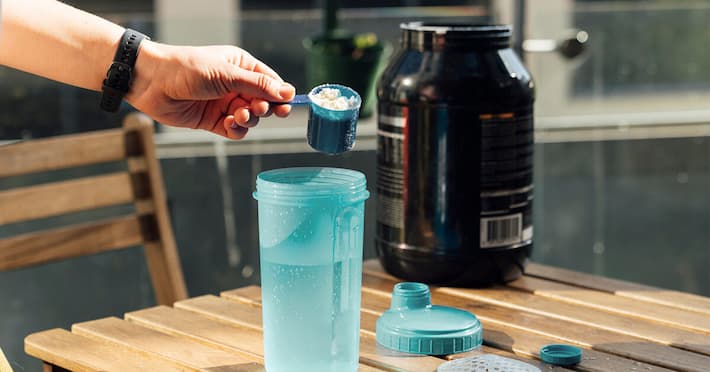With all the different fitness supplements today along came the various misconceptions about losing weight and gaining muscle. And a trip to the local supplement store won’t make it easier for you. Different people have different selling points and products in stock, which can make the information they give biased. If you’re looking for a supplement to help reach your fitness goal, what can help you make the best decision? Staying informed about your options is very important. Yet, it’s even more critical to get the correct information, including medical research and honest recommendation. As protein powders are becoming more and more popular nowadays, what do you need to know about them and what protein powder is the best choice for fitness enthusiasts?
What Are Protein Powders?

Protein powders are concentrated sources of protein, both from animal and plant foods that contain high levels of protein. Such include dairy, eggs, peas, rice and hemp. Various types offer various health benefits, of which more and more people become conscious. Which protein powder type is best for muscle gain? Most fitness gurus today agree that whey protein powder is the best choice for building lean muscle. The comprehensive research we have on whey protein backs up this popular opinion. Is it good to take whey protein powder? And, can whey protein make you gain weight?
What Is Whey Protein?

Whey protein is one of the two proteins we find in cow’s milk. In the process of cheese-making, called curding, there is cheese curd as the main product and whey as a byproduct. Whey is a nutrient-dense liquid that contains all the nine amino acids, which are the building blocks of protein. This is exclusive to only whey protein. Packed with other vitamins and minerals, this makes whey the most nutrient-rich protein. The whey liquid is then filtered and dried to be made into a whey protien powder that people take as a nutritional supplement. If you’re trying to lose some weight, you should take it with water or plant-based milk, such as almond milk. And if you’re fitness goal is building muscle, you should drink your powder with a glass of cow’s milk for extra calories.
How Beneficial is Supplementing with Whey Protein?

A diet can only be healthy if it’s balanced. This means you can only benefit if you’re taking enough protein, carbs, as well as vitamins and minerals. To stay healthy and manage a healthy weight, you must take in enough protein daily. It helps gain muscle mass and prevent muscle loss that comes with aging. This is an impossible goal for some people, such as those recovering from illnesses or having food aversions. That’s why they need to take protein supplements like whey powder to reach the recommended protein intake.
However, from amateurs to professional elites, physically active people commonly use whey as supplementation. Alongside resistance exercise, whey helps them improve muscle protein synthesis and promote the growth of lean muscle mass. In this situation, whey protein is extra protein added to their existing diet.
Is there more than the rich nutritional profile that makes whey the first protein choice of so many people? Compared to other protein powders like casein, whey is easily digested when consumed in moderation. Studies have shown that supplementing with whey protein powder can help with:
- Losing weight effectively
- Lowering blood sugar levels
- Coping with asthma
- Fighting cancer
As long as you don’t exceed your daily protein levels, taking whey supplements daily is your safest bet for gaining lean muscle and boosting your immunity at the same time.
How to Choose the Right Whey Protein Powder for You?
Knowing that there is more than just a single type of why protein sounds even more overwhelming. What are the main types, and how can you choose the best for you? There are 3 main types of protein powder.
- Whey Protein Concentrate (WPC) has the highest amount of fat and carbohydrates. It can contain 30-80% of protein. It’s the least expensive whey option.
- Whey Protein Isolate (WPI) has been filtered from fat and carbs, leaving at least 90% protein concentration. As it offers a bigger amount of protein, which demands further processing, it’s a bit pricier than the concentrate.
- Whey Protein Hydrolysate (WPH) is the most filtered whey protein powder. It’s been pre-digested and broken down so it can be easily digested. It can be even found in infant formula and medical supplements.
A fitness influencer called Jeremy Ethier has explained the 3 whey protein types comparing them to the protein we get from chicken. He said that whey concentrate can be compared to chicken thighs: they contain a good amount of protein but they also contain some fat and carbs. Whey isolate can be compared to chicken breasts: they contain a minimal amount of fat and a high percentage of protein. And, hydrolysate can be compared to chicken ground meat: it contains the same ingredients but is more processed.
Not only this comparison helps us understand whey powders but it also helps us with choosing the right protein for us. If you enjoy eating chicken thighs and you’re not bothered with the fat they contain, then the whey concentrate shouldn’t bother you either. If you make more conscious choices regarding diet and your first choice is chicken breasts, then opt for a high-quality whey isolate. If you have digestive problems, then hydrolysate is best for you.
Choose Your Whey Powder Carefully
As supplements don’t need to get FDA approved to go into sale, you must be very careful when buying your whey protein supplements. Make sure the powder you buy contains a good amount of clean protein. You can do that by looking at the amount of protein you’re actually getting relative to the total scoop size. That way you can avoid the use of something called proprietary blends.
Another trap you want to avoid falling for is something called protein spiking. Some companies add cheap nitrogen compounds into their formula, such as BCAA’s or creatine. Again, you can avoid this by taking a closer look at the nutrition label.
The last and final thing to look out for is contamination (heavy metals and plastic derivatives). To minimize your risk as a consumer, simply find out what their testing protocols are and specifically what they test for.



